
21 minute read
Marshalltown Community College moves toward federal Hispanic-Serving Institution designation
By Nina Baker, Times Republican
As Latino and Hispanic enrollment increases at Marshalltown Community College (MCC) every year, the school moves closer to being designated a HispanicServing Institution (HSI), a federal recognition for colleges and universities which have a full-time undergraduate enrollment of at least 25 percent Hispanic students. If MCC reaches that percentage, it will be the first HSI in Iowa and join the ranks of over 400 in the United States. “I think getting this designation would help community members recognize that we’re here to serve them, and that we have a lot of resources and services here for them,” said Theresa Orlovsky, ESL professor at MCC. HSIs can compete for grants to improve academic attainment, promote post baccalaureate enrollment, and to increase the number of Hispanic and low-income students studying science, math, engineering or technology. The U.S Department of Education provides over $100 million in funds annually to HSIs. “It’s exciting to have the potential down the road of being able to apply for some things that maybe we haven’t been able to apply for in the past,” MCC Provost Robin Lilienthal said. “And when you would apply for a federal grant, you might have an opportunity to have a leg up when you are a Hispanic Serving Institution, even if that grant was not necessarily specifically identified as only for HSIs.” As of the spring semester of 2022, 19.4 percent of MCC students identified as Hispanic or Latino. However, the US department of education does not calculate the percentage of Hispanic or Latino students with the same methodology. To determine HSI status, they use the fulltime equivalent undergraduate enrollment data, meaning many part-time Hispanic students at MCC would not factor into the percentage tracked by the government. Regardless of which method is used, MCC students self-report their race and ethnicity to the college, which Lilienthal said may cause some under-reporting of the number of Hispanic or Latino students. “Particularly if a student is undocumented, they sometimes will not identify their race or ethnicity because of fear that that information could have a negative impact on themselves or their family, which we would not do,” Lilienthal said. In 2018, the research organization Excelencia in Education designated MCC as an Emerging HSI — denoting a Hispanic and Latino enrollment between 15 and 24.9 percent of the total student body. Excelencia in Education has labeled over 360 institutions as Emerging HSIs, and many have gone on to receive the full designation. According to research by the American Council on Education, students at two-year HSIs have double the economic mobility rates as students at two-year non-HSIs, which holds for all students at HSIs whether they are Hispanic or not. Even though the prospect of full-HSI status excites many administrators and faculty at MCC, Lilienthal said the college is not pursuing an explicit strategy to just raise Hispanic and Latino enrollment numbers. “We are specifically working towards serving our Hispanic and Latino students because it’s the right thing to do for our community,” Lilienthal said. “But it’s not with the intent to receive some sort of designation such as an HSI.” In 2019, MCC embarked on an initiative to expand opportunities for Hispanic students and increase successful education outcomes. “The slogan we came up with was MCC Es Para Mi, which in Spanish means ‘MCC is for me,’” Orlovsky said. “That’s kind of one of our main mindsets going into this. We want our Hispanic students to feel supported and welcome here and to know that a college education is for them.” The College chartered a collegiate chapter of the League of United Latin American Citizens (LULAC). MCC LULAC has hosted events for Hispanic students including art exhibitions, panels and networking events with local Al Exito clubs. MCC also began hosting Latino Family Nights for families to meet with MCC staff and learn about higher education enrollment, financial aid opportunities or other resources for Latino students. Before the pandemic, the Family Nights were held at least once a semester, often more frequently, but these events have moved onto Zoom and have declined in frequency after COVID-19 emerged. Now, in 2022, Lilienthal is optimistic that MCC will bring in-person Latino Family Nights back as case counts drop nationwide. Lilienthal also said MCC will be posting job openings for Spanish-speaking advisors and recruiters. Diversifying the faculty and staff of MCC, she said, is one of MCC’s main goals right now. “The more Spanish speakers that we have on campus, the better,” Orlovsky said.
Advertisement
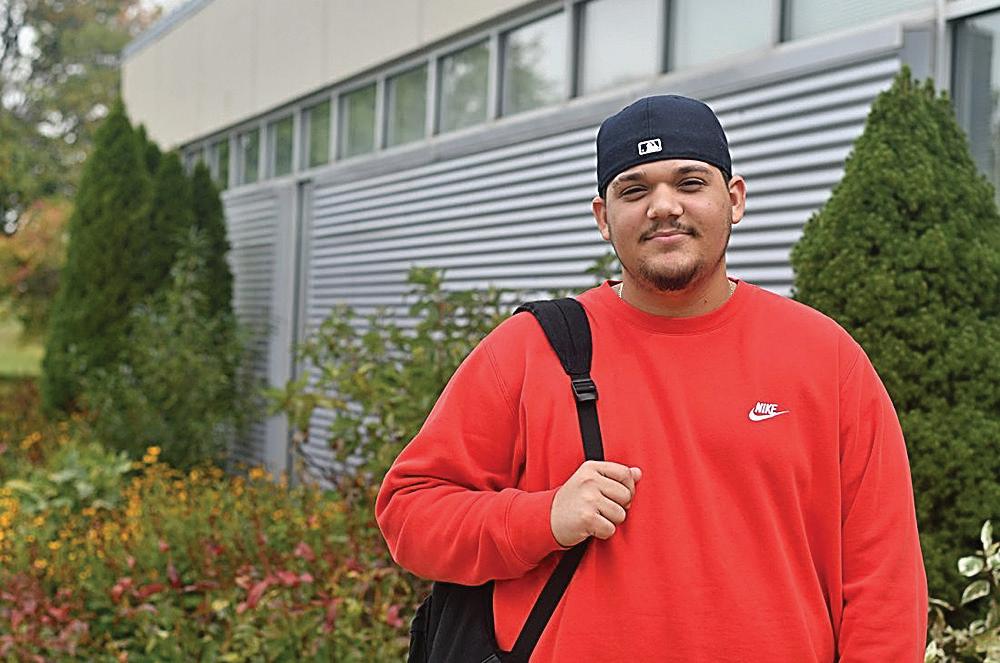
Justin Sanchez Rubio, who immigrated from Cuba, said he didn’t have the educational opportunities like he does at MCC. Since coming to Marshalltown, Sanchez Rubio has completed ESL courses as well as courses for his future profession.
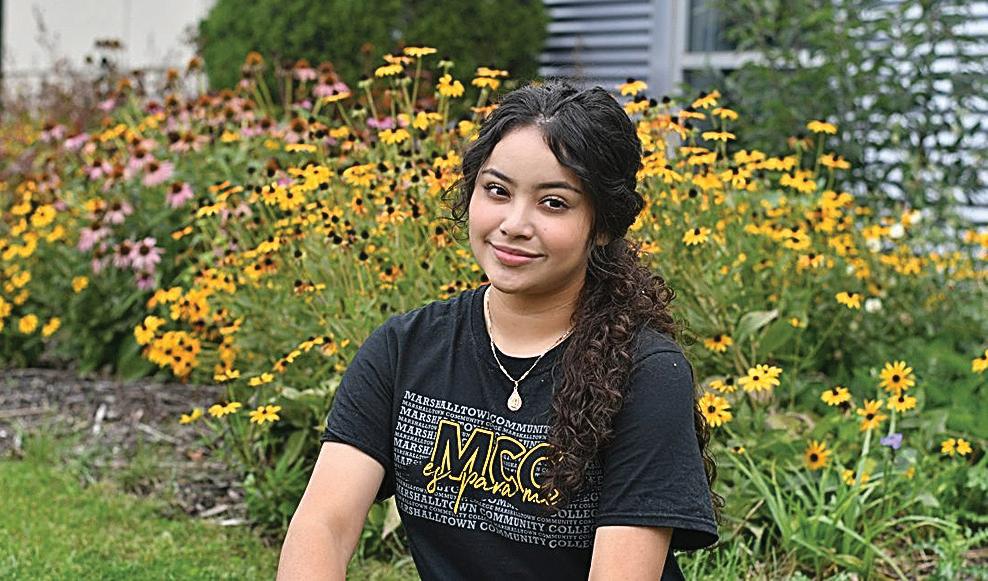
Marisol Lopez Silva, a first-generation college student, said her studies at MCC are an essential part of her life right now. “It provides me with the opportunity to accomplish my educational goals and prepare me for my future.”
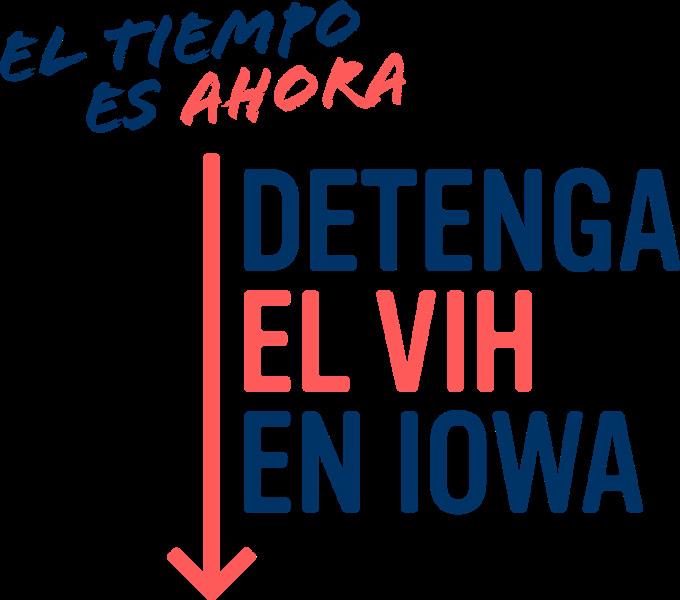

Estamos elaborando un plan para detener el VIH en Iowa y necesitamos de tu ayuda.
Podemos detener el VIH en Iowa. Estamos desarrollando un plan con aportes de socios de todo el estado, ¡y queremos saber de ti! Envíanos tus comentarios, ideas y preguntas. Tu voz es parte importante de esta historia.
Para obtener más información y participar, visite StopHIVIowaPlan.org

Follow a path from darkened space to darkened space, each filled with light, color, and sound. IMMERSIVE presents art that provokes emotion and imagination, and a space to step fully into the artwork itself.
FEATURED ARTISTS MATTHEW WILLIE GARCIA | RAN HWANG | OYORAM | BILL VIOLA
EXHIBITION OPENING FRIDAY, MARCH 11 | 5 –7 PM | MASKS REQUIRED ON VIEW THROUGH JUNE 5, 2022
INFORMATION AT DESMOINESARTCENTER.ORG
SUPPORT FOR THIS EXHIBITION IS PROVIDED BY
Pamela Bass-Bookey and Harry Bookey Moving-Image and Time-Based Art Fund The Buberl-Knautz Family | Toni and Tim Urban International Artist-in-Residence Fund Iowa Arts Council, a division of the Iowa Department of Cultural Affairs, and the National Endowment for the Humanities: Exploring the Human Endeavor.
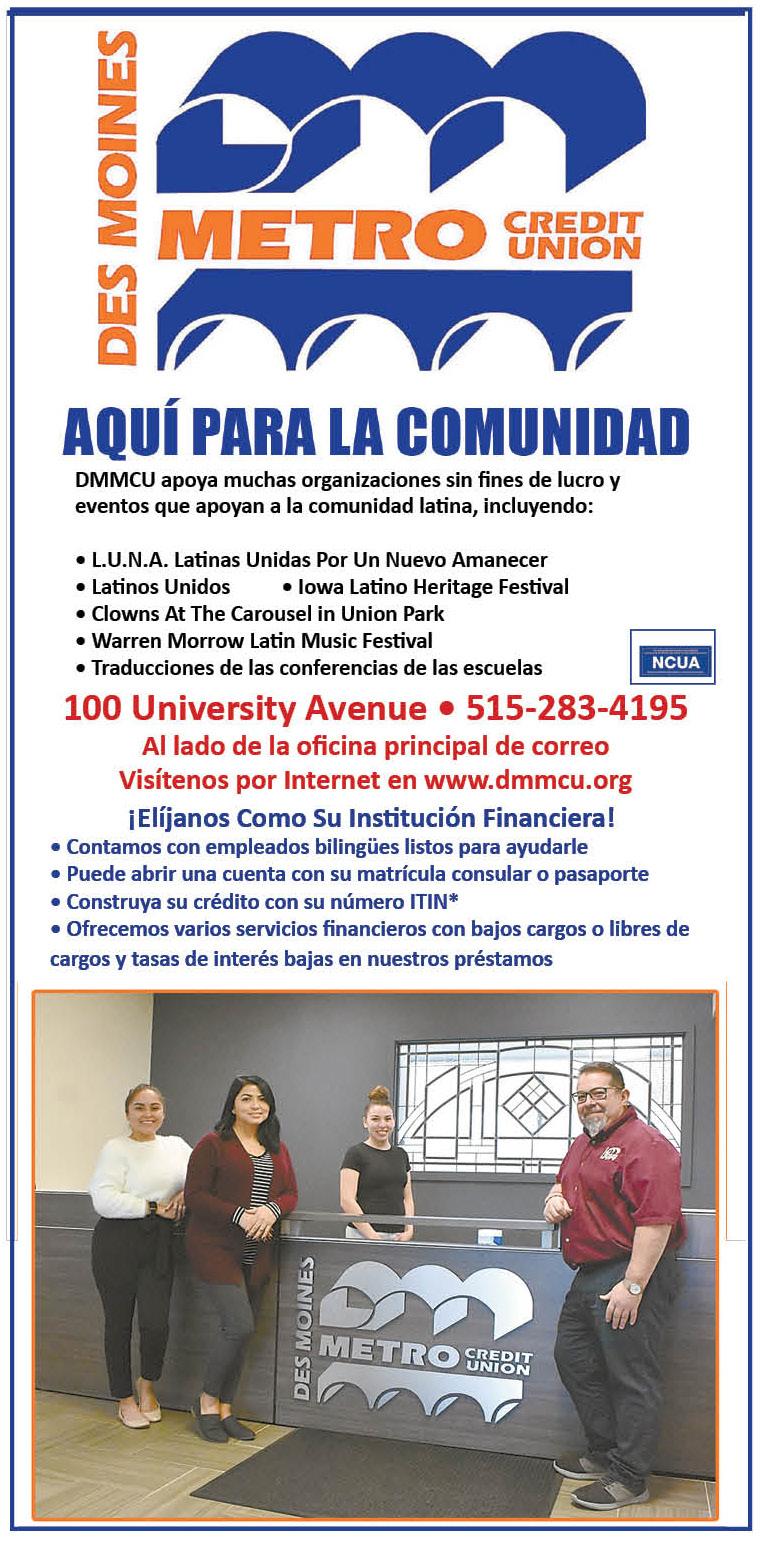


Jessica Lopez was shot in the head outside East High in Des Moines. She still wakes up screaming for help.
By Andrea May Sahouri, Des Moines Register
Jessica Lopez remembers a red Ford F150 circling the block of East High School’s north parking lot. She also remembers the face of the teenager who allegedly shot her in the head. “She’s awake,” the 16-year-old’s mother, Guadalupe Torres, said through an interpreter. Torres wore a gold rosary around her neck. “And she can still see his face.” Lopez and another East High student, Kemery Ortega, were caught in the gunfire in what police said they believe was a driveby shooting outside of the school on March 7. Both were shot in the head. Both survived. But Jose Lopez-Perez, 15 — whom police believe was the intended target of the shooting — was killed. Six local teenagers were originally charged, each with first-degree murder and two counts of attempted murder. As of today four more teenagers have also been arrested and face the same charges. Jessica Lopez still wakes up screaming for help Torres, 35, said her daughter was waiting outside to get picked up from school early. Then, Lopez heard gunshots, Torres said her daughter told her. A bullet went through her skull. Another hit her hand. Torres said Lopez remembers hearing more gunfire as she lay injured on the ground. When Torres found out about the shooting, “I thought I was going crazy,” she said. She drove to the school to see if it was true. She saw the crime scene. She asked police if her daughter was okay. “They said they didn’t know,” Torres said. Since the shooting, Torres has felt panic and fear, she said. When medical staff guided her to a private room at the hospital, her stomach dropped. She thought they would tell her her daughter didn’t survive, she said. Her daughter is recovering but the fear hasn’t left her, she said. Lopez has been waking up in the middle of the night screaming for help, Torres said. And when Lopez speaks, Torres said she can hear frustration and anger in her daughter’s voice. Despite Lopez’s progress, doctors have told Torres that the brain damage and injuries Lopez suffered have life-long consequences, she said. Doctors are still assessing the extent of the damage, and like Ortega, Lopez will also need titanium plates in her skull, she said. Torres said that her daughter sometimes doesn’t remember her family or friends. But she’s awake, she can talk, and she can eat without a feeding tube — she’s been craving chicken nuggets, Torres said, chuckling. It was the last meal her daughter had before she was shot. The recovery process feels slow, but her daughter is strong, Torres said. The Des Moines community and beyond have been stepping up to help the victims of the shooting, including Lopez. A GoFundMe to support Lopez’s recovery has raised over $15,000 Jessica Lopez is tough and stands up for herself, her mother says Torres described her daughter as social. She loves to go out and dance with her boyfriend, she said, and she loves spending time with her family and friends. She’s also tough, she said. She stands up for herself. “She also likes to have things her way,” Torres added with a smile. Lopez is also compassionate and loves to help others, Torres said. And Lopez recently vowed to become a better person, Torres said. She had been taking her future and her path towards beauty school more seriously. Torres said there is so much uncertainly about what her daughter’s life will look like after she’s released from the hospital. “The damage is done,” Torres said. Now, she, like others from the community, is calling for action so guns aren’t falling into the hands of children so what happened to her daughter will not happen again.

Andrea Sahouri covers social justice for the Des Moines Register. She can be contacted at asahouri@registermedia.com, on Twitter @andreamsahouri, or by phone 515-284-8247.

Continúa de la página 6
asiste a North High School. Ella dijo al panel que su hija necesitaba terapia, y aunque estaba en contacto con la escuela, se dio cuenta de que no había mucho que pudieran hacer por su hija. “No tengo mucha información sobre las escuelas. Al escuchar a los niños, me di cuenta de que no tenemos muchos servicios en las escuelas públicas de Des Moines”, dijo en español. Las escuelas públicas de Des Moines ofrecen servicios para estudiantes de inglés a más de 6,800 estudiantes con 160 profesores y personal. También ofrece asesoramiento en todas sus escuelas y una Guía de Recursos Familiares en más de 50 idiomas. En el distrito se hablan más de 100 idiomas. Nela Blanco trabaja en el departamento de servicios lingüísticos de las Escuelas Públicas de Des Moines desde hace 16 años. Ha trabajado con estudiantes de todas las edades. Dice que ha visto una gran diferencia en las escuelas este último año sin los SRO. “En lugar de la policía, tenemos, en Roosevelt, ocho personas que son monitores de pasillo y trabajan en la justicia restaurativa”, dijo en español. “Caminando en las escuelas, he notado que la diferencia es que están conectando con sus estudiantes. Están hablando con sus estudiantes... están conectando de manera positiva con ellos”. “Les he oído y visto llorar juntos, reír juntos”, continuó Blanco. “Están marcando una gran diferencia. Necesitamos a estas personas”. Los asistentes y los panelistas estuvieron de acuerdo en que no llegarían a una solución definitiva a los desafíos que ellos y sus familias enfrentan en una noche. La miembro del Consejo Escolar Alonzo-Díaz reconoció que aún queda trabajo por hacer. “La educación fue la razón por la que creo que muchos de nosotros vinimos a este país. Creo que la educación empieza definitivamente en nuestro hogar. La responsabilidad que tenemos de resolver el tema de la seguridad y... la seguridad no es el único problema que tenemos. Tenemos mucho que trabajar”, dijo en español. La estudiante de East High School Marisol Herrera, de 16 años, asistió a la reunión. Durante la mayor parte de la misma, apoyó su cabeza en el hombro de su madre hasta que se sintió cómoda para hablar. Levantó la mano y un voluntario le acercó un micrófono para que pudiera dirigirse al público. Su voz vaciló al admitir que se pondría a llorar. Dijo que
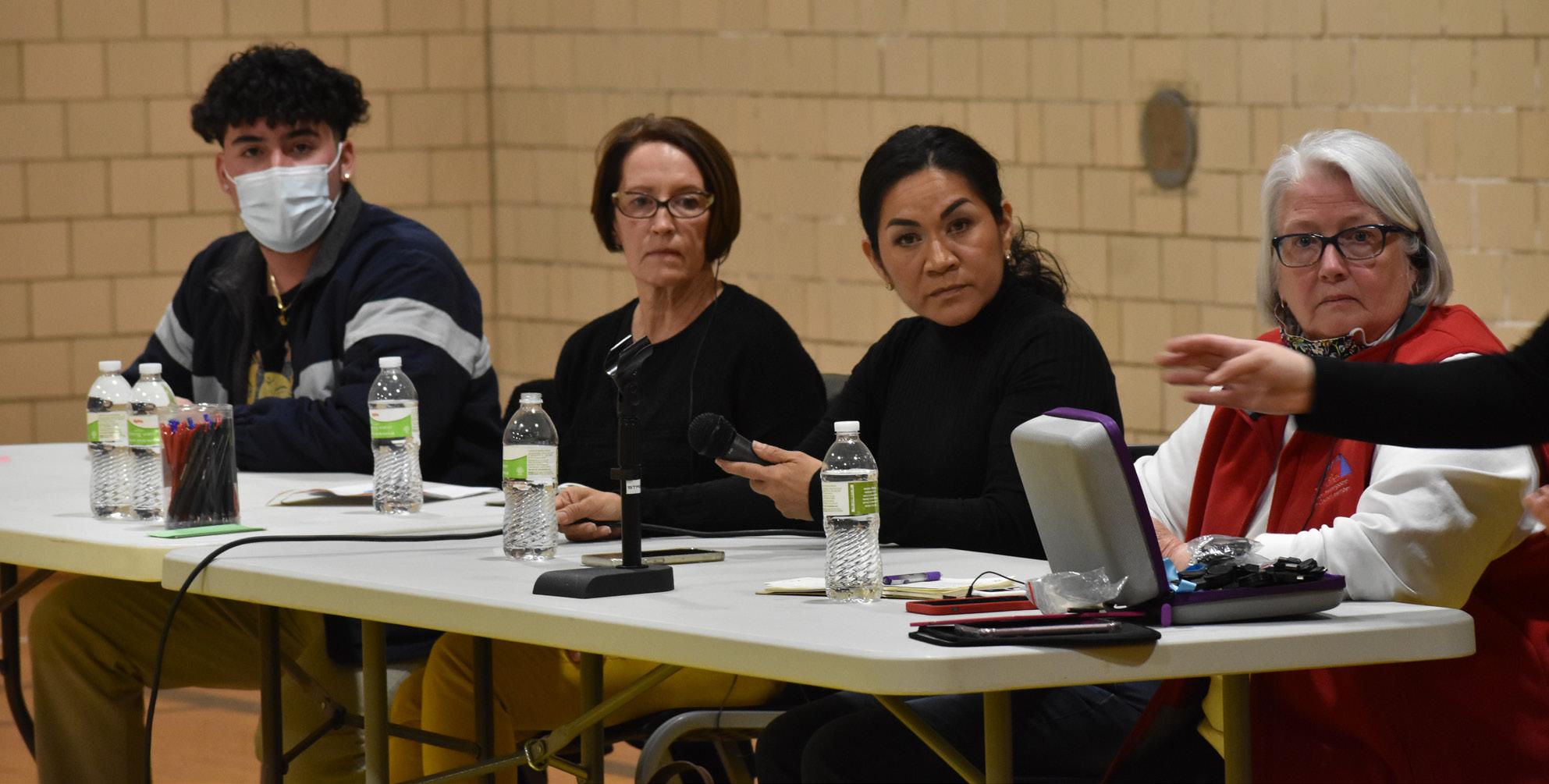
Endí Montalvo-Martinez, Connie Boesen está en el concejo de la ciudad de Des Moines, Maria Alonzo-Diaz es miembro de la Junta Escolar de Des Moines y Linda Westergaard también está en el concejo de la ciudad. Dirigieron el panel en la reunión. Foto por Tar Macias / Hola Iowa
ambas partes de la discusión eran válidas: la de MontalvoMartínez y la de los padres que querían que volvieran los SRO. “Como estudiante, siento que esto puede ir de muchas maneras, no sólo tiene que ver con la policía y sólo con que se ponga dinero en nuevos estadios y todo eso, sino que siento que puede ir de muchas maneras. No tiene por qué ser una opción determinada...”. Herrera perdió la capacidad de hablar mientras se limpiaba las lágrimas de sus ojos enrojecidos. Montalvo-Martínez, graduado del East High, instó a los asistentes: “Espero que podamos ayudar a nuestros estudiantes y a la comunidad a aliviar la violencia y encontrar un futuro en el que no necesitemos a la policía, no tengamos violencia y tengamos los recursos necesarios que necesitamos para avanzar”. Otros líderes latinos también han lamentado la pérdida de una joven vida de su comunidad. Un capítulo de Des Moines de la Liga de Ciudadanos Latinoamericanos Unidos (LULAC) celebró una conferencia de prensa a primera hora del día de la reunión de la comunidad junto con muchas otras organizaciones de defensa. “Debemos reconocer que la causa fundamental de la violencia es la desigualdad. Y comunidades como la nuestra se han visto afectadas por la desigualdad y el trauma durante generaciones”, dijo María Corona, directora ejecutiva de la Coalición de Iowa contra la Violencia Doméstica. Los hispanos y/o latinos constituyen la mayor población minoritaria de la ciudad, con algo menos del 14%. El 29 por ciento del distrito de las escuelas públicas de Des Moines se identifica como hispano, y tuvo una tasa de graduación del 69.9 por ciento en 2021. Eso se compara con una tasa de graduación del 78.9 por ciento para los estudiantes que se identifican como blancos. Según los datos del estado, el ingreso medio de los hogares latinos en 2019 fue de 48,346 dólares, mientras que el ingreso medio de los hogares de todo el estado fue de 61,691 dólares. También se encontró que la edad promedio de los latinos en Iowa es unos 15 años más joven que el resto de la población promedio de Iowa. Casi al final de la reunión en la Franklin Junior High School el viernes por la noche, Gabriela “Gabi” Mayorga (hija de Hernández), de 9 años de edad, ofreció a la multitud un consejo antes de salir a tomar la cena proporcionada de tostadas de pollo o ceviche: cuando hay un bully, cree en ti mismo y aboga por ti mismo.
Continues from page 7
necessary resources we need to move forward.” Other Latino leaders have also been vocal in mourning the loss of a young life from their community. One Des Moines chapter of the League of United Latin American Citizens (LULAC) held a press conference earlier in the day before the community meeting along with many other advocacy organizations. “We must recognize that the root cause of violence is inequity. And communities like ours have been impacted by inequity and trauma for generations,” Maria Corona, executive director of the Iowa Coalition Against Domestic Violence, said. Hispanic people and/or Latinos make up the largest minority population in the city at just under 14 percent. 29 percent of the Des Moines Public School district identifies as Hispanic, and had a graduation rate of 69.9 percent in 2021. That’s compared to a 78.9 percent graduation rate for students who identify as white. According to state data, the median income of Latino households in 2019 was $48,346, while the median household income for the whole state was $61,691. It also found the average age of Latinos in Iowa is about 15 years younger than the rest of Iowa’s average population. Near the end of the meeting at Franklin Junior High School on Friday night, 9-year-old Gabriela “Gabi” Mayorga (Hernandez’s daughter), offered the crowd some advice before heading out to grab the provided dinner of tostadas de pollo o ceviche: when there’s a bully, believe in yourself and advocate for yourself.

The Latinos of the Business Record Forty Under 40
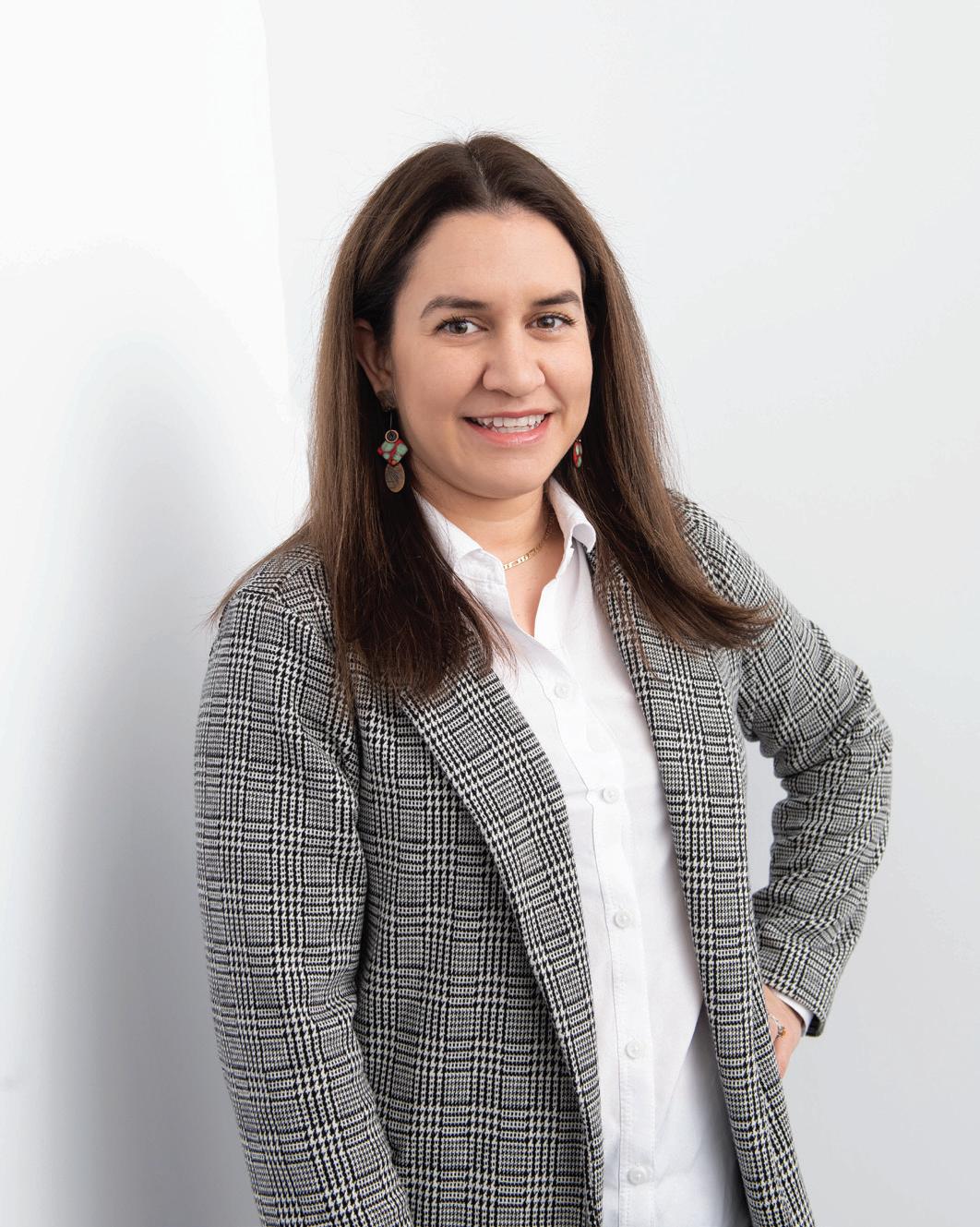

The Business Record announced the honorees of the Forty Under 40 for 2022 These 40 local business leaders, who were chosen by past award winners, are under the age of 40 and have demonstrated impressive career achievements and unparalleled community involvement. Together, they join 880 past Business Record Forty Under 40 honorees to bring the total number of honorees to 920 since the Business Record began the awards in 2000. Each of the honorees was profiled in the March 25 edition of the Business Record and were recognized at an
Maria Corona
event on Wednesday March 30. Among the 40 honorees were 3 exceptionary Latinos that are making an impact in the Des Moines Metro Area.
Maria Corona - Executive Director, Iowa Coalition Against Domestic Violence Veronica Guevara - Director of Equity and Inclusion, Iowa Coalition Against Domestic Violence Luis Montoya - Chief Planning Officer, DART
Profiles originally published in the Business Record
Age: 33 Spouse: Ricardo Corona Children: Ricardo Kawsay Corona Alcivar Mentor: Tera R. Jordan, Ph.D., assistant provost for faculty development and associate professor of human development and family studies, Iowa State University Reasons she is a Forty: Maria co-developed the ICEreporting statewide hotline. She organized faith groups from various denominations in Story County to support undocumented families and co-developed a statewide DACA fund. She serves as the board president of Al Exito. Maria created policy changes along with educational campaigns at Iowa State University related to equity and inclusion, successfully changing parental leave policies to support birthing graduate students and their partners. She mobilized with the 2016 LULAC Latinos Like to Caucus campaign to turn out a record 10,500
Veronica Guevara
Latinx people to caucus. She received the K. Patricia Cross Future Leaders Award, earning national recognition for her civic and educational contributions. She was a Des Moines Register 2022 15 People to Watch. What is it that drives you? I am a first-generation immigrant from Ecuador who was undocumented for 15 years in the U.S. As part of the Latin American diaspora, we experienced many barriers but my family’s story of resilience has always been my motivation in pursuing lifelong dreams and justice for immigrants. What are your future aspirations? My career goal is to influence and ultimately change national policy, decisions and programs to bring about equity and opportunity for prosperity to families historically excluded.
You can read Maria Corona’s full profile at HolaIowa.com
Age: 30 Spouse: Joel Ibarra Children: Emma, 3, Camila, 8 months Mentor: Lindsay Pingel, director of community engagement, Iowa Coalition Against Domestic Violence Reasons she is a Forty: Veronica is a fierce advocate and leader in our community, constantly opening doors for others and paving the way for future generations. She represents a new generation of diverse leaders who are problem solvers and effectively bring about change through innovative solutions. She is passionate and committed to supporting and advocating for marginalized communities in Iowa. She has invested time and resources to strengthen her community. She has served on various boards, committees and coalitions while also educating and engaging with new citizens and newly eligible voters in the political process for more than a decade. She is a current board member for Iowans for Immigrant Freedom, serves on the Marshalltown School District’s Equity Committee and is developing a BIPOC-centered anti-violence parenting initiative for ICADV and its network of 22 statewide victim service programs. What is it that drives you? My hometown experienced an immigration raid when I was in high school and I saw firsthand the devastating effects of our deteriorated immigration system. My family was directly affected and people I love were and continue to be deeply affected. I was a teen and told myself that I do what was within my reach so that others in similar situations wouldn’t feel alone. I committed to do what was within my power to teach my community about their rights and advocate for themselves.
What is your wish for the Central Iowa business
community? My wish for the Central Iowa business community is to truly invest in eliminating barriers to success for BIPOC communities. I would love to see both short- and long-term investments and commitments.

Luis Montoya
Chief planning officer, Des Moines Area Regional Transit Authority (DART)
Age: 39 Spouse: Niki Hinton Children: Emerson and Levi Mentor: Angela Connolly, Polk County supervisor Reasons he is a Forty: Luis led the process to create a new long-term vision for DART’s transit services. He helped DART launch innovative pilots, modernize its data dashboards, and build meaningful connections with the communities DART serves. As a board member at the Polk County Housing Trust Fund, Luis leverages his urban planning knowledge and regional relationships to promote affordable housing and ensure public and private funds are invested wisely to serve the region’s housing needs. Over the past two years, Luis has helped both DART and the housing trust navigate new challenges and find new ways to meet the region’s pandemic response needs. What is it that drives you? I am driven by a desire to help others succeed. In my first job as a lifeguard and swim instructor, I got to help children learn to swim. I coach soccer because I enjoy watching kids improve and grow their skills. My career is dedicated to helping people get to jobs and essential services.
What is one issue you would like to see
Central Iowa leaders address? Our health and livelihood hinges on water quality. There are other environmental issues that can seem too daunting to try to address, but water quality should be an issue that unites us and inspires collective action to address issues that are entirely within our state’s ability to control. I think that we would find we have much more in common in our desire to protect our community and find common-sense solutions.
You can read Luis Montoya’s full profile at HolaIowa.com
AVISO DE PERÍODO DE COMENTARIO AL PÚBLICO Y HORA Y LUGAR DE LA AUDIENCIA PÚBLICA PARA DISCUTIR EL PLAN ANUAL 2023 DE LA AGENCIA MUNICIPAL DE VIVIENDAS DE MUSCATINE Y ENMIENDAS AL PLAN ADMINISTRATIVO DEL PROGRAMA DE VIVIENDAS SECCIÓN 8 Y LA ADMISIÓN DE VIVIENDA PÚBLICA Y POLÍTICA DE OCUPACIÓN CONTINUA


Se le invita al público a comentar sobre el plan anual del 2023 de la Agencia Municipal de Viviendas de Muscatine (MMHA), a las revisiones al Plan Administrativo del Programa de Viviendas (Sección 8) y a la Admisión de Vivienda Pública y Política de Ocupación Continua (ACOP). El plan anual describe las metas, objetivos y pólizas, la cual MMHA utiliza para administrar los programas, incluyendo aquellos en el Plan Administrativo y ACOP. Los documentos estarán disponibles para su revisión y comentario en las oficinas de MMHA en el 215 Sycamore Street, durante horario regular de trabajo comenzando en Marzo 29 hasta Mayo 12. Copias electrónicas podrán ser obtenidas contactando MMHA al jroyal-goodwin@muscatineiowa.gov o llamando al 563-262-4141. Se llevará a cabo una Audiencia Pública el 12 de Mayo del 2022 a las 7:00 p.m. durante la reunión del Consejo de la Ciudad de Muscatine. La participación del público en la Audiencia Pública podrá ser presencial o electrónico a través del enlace GoToMeeting la cual será publicada en la agenda oficial. Si usted requiere de alguna adaptación especial por una discapacidad o barrera de idioma, favor de contactar MMHA al 563-262-4141 al menos tres días laborales de anticipación a la fecha de la reunión a llevarse a cabo. Los comentarios pueden ser envíados en persona al MMHA, 215 Sycamore St, Muscatine, IA 52761 o electrónico al correo jroyal-goodwin@muscatineiowa.gov. El periodo de comentarios públicos comenzará en Marzo 29 y concluirá en Mayo 12 a las 7:00 p.m.



